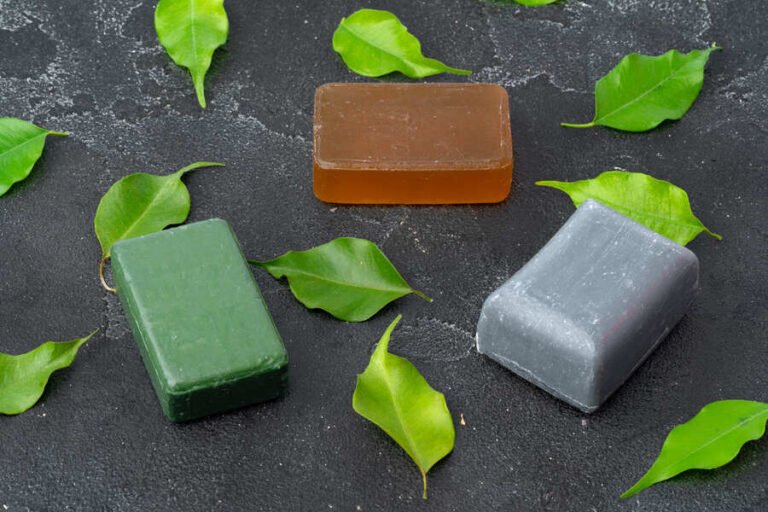Have you ever wondered if castor oil clogs pores? Well, wonder no more! In this article, we'll uncover the truth behind this common concern and give you all the information you need to make an informed decision about using castor oil on your skin.
So, if you're ready to break free from the uncertainties and discover the real deal about castor oil and pore-clogging, keep reading. It's time to set your pores free!
Key Takeaways
- Castor oil has a low comedogenic score of 1, indicating it has low pore-clogging potential.
- Using castor oil on the skin is generally safe and does not significantly increase the risk of acne or clogged pores.
- Castor oil has various benefits for the skin, including fighting acne, improving complexion, and hydrating the skin.
- It is important to take immediate action to remove castor oil stains from fabric to prevent permanent staining.
Understanding the Composition of Castor Oil
To understand the composition of castor oil, you should be aware of its main component, ricinoleic acid, and its various benefits for the skin.
Ricinoleic acid makes up about 85-95% of the fatty acids found in castor oil. It's a unique fatty acid that possesses anti-inflammatory and antimicrobial properties. These properties help to soothe and heal the skin, making castor oil a popular choice for treating various skin conditions such as acne, eczema, and psoriasis.
In addition to ricinoleic acid, castor oil also contains other fatty acids like oleic acid and linoleic acid, which further contribute to its skin-nourishing properties.
To extract castor oil, methods such as cold pressing or solvent extraction are commonly used. These methods ensure that the oil retains its beneficial properties.
The Comedogenic Scale and Castor Oil
If you have concerns about the comedogenicity of castor oil, it's important to understand the comedogenic scale and how castor oil ranks on it. The comedogenic scale rates oils based on their tendency to clog pores. Castor oil has a comedogenic score of 1, indicating low pore-clogging potential. This means that using castor oil is unlikely to cause acne breakouts or blackheads.
When compared to other oils, castor oil is considered to be one of the least comedogenic. This makes it a great choice for those who are prone to acne or have oily skin.
In addition to its low comedogenicity, castor oil is also effective for treating acne. Its antimicrobial and anti-inflammatory properties help to fight acne-causing bacteria and reduce inflammation.
Benefits of Castor Oil for Skin
Using castor oil on your skin can provide numerous benefits for its health and appearance. When it comes to acne treatment, castor oil plays a significant role. Its antimicrobial and anti-inflammatory properties help fight acne-causing bacteria and reduce inflammation, promoting clearer skin.
Additionally, castor oil is beneficial for sensitive skin. It soothes and calms irritated skin, making it suitable for those with sensitivity issues. The hydrating and moisturizing properties of castor oil also help to improve the overall health and appearance of the skin. It protects the skin from bacterial infections, removes dirt and impurities, and improves complexion.
Whether you have acne-prone skin or sensitive skin, incorporating castor oil into your skincare routine can provide various benefits for your skin's well-being.
How to Prevent Castor Oil Stains
To prevent castor oil stains, try blotting the oil immediately and applying a stain remover to the affected area.
Castor oil is a staining substance that can leave permanent stains if not removed promptly. It's important to keep castor oil away from sheets and clothing to prevent staining. When a stain occurs, taking immediate action is crucial.
Blotting the oil with a clean cloth or paper towel can help absorb as much of the oil as possible. After blotting, apply a stain remover specifically designed for oil-based stains to the affected area. Gently rub the stain remover into the fabric and let it sit for a few minutes. Then, wash the fabric as usual.
Following these steps and using a stain remover can greatly improve your chances of effectively removing castor oil stains from fabric.
Using Castor Oil for Hair Care
If you want to improve the health and appearance of your hair, consider using castor oil.
Castor oil is known for its nourishing properties and can be beneficial for hair growth and scalp health.
When applied to the scalp, castor oil helps to moisturize and hydrate the hair follicles, promoting healthy hair growth. It also strengthens the hair strands, reducing breakage and improving overall hair health.
Castor oil can be particularly beneficial for individuals with dry or itchy scalps, as it helps to soothe and alleviate these conditions.
To use castor oil for hair care, simply apply a small amount to your scalp and massage it in gently. Leave it on for a few hours or overnight before washing it out.
Incorporating castor oil into your hair care routine can help you achieve healthier, stronger, and more vibrant hair.
Safety of Castor Oil for Different Skin Types
For individuals with different skin types, castor oil is generally safe to use and can offer various benefits for your skin. Here are some safety precautions and best application techniques to keep in mind:
- Patch testing: Before using castor oil on your face or body, it's important to conduct a patch test. Apply a small amount of oil on a small area of your skin and wait for 24 hours to see if any adverse reactions occur. This will help determine if you have any sensitivity or allergies to the oil.
- Dilution: Castor oil is highly concentrated, so it's best to dilute it with a carrier oil like coconut or almond oil before applying it to your skin. This will help prevent any potential irritation or dryness.
- Cleansing: Make sure to cleanse your skin thoroughly before applying castor oil. This will ensure that the oil can penetrate effectively and provide its moisturizing and nourishing benefits.
Patch Testing and Potential Sensitivities
Before incorporating castor oil into your skincare routine, it's essential to conduct a patch test to determine any potential sensitivities or allergies you may have. Patch testing is an important step to ensure that the product is suitable for your skin and doesn't cause any adverse reactions.
To perform a patch test, apply a small amount of castor oil to a small area of your skin, such as the inner forearm, and wait for 24 to 48 hours. If you experience any redness, itching, or irritation during this time, it's likely that you have a sensitivity to castor oil. Common sensitivities include allergic reactions, such as hives or dermatitis.
It's important to note that everyone's skin is unique, and patch testing can help identify any potential sensitivities before using castor oil on your face or body.
Final Thoughts on Castor Oil and Pore Clogging
When using castor oil on your skin, it's important to note that it generally has a low pore-clogging potential and is unlikely to cause acne or clogged pores. This means that you can enjoy the benefits of castor oil without worrying about potential side effects on your skin.
Here are some final thoughts on castor oil and pore clogging:
- Liberation: Castor oil liberates your skin from acne and clogged pores, giving you the freedom to embrace a clear and radiant complexion.
- Confidence: With castor oil, you can feel confident in your skin, knowing that it's protected from potential breakouts and blemishes.
- Alternatives: If you're looking for alternatives to castor oil, consider jojoba oil, argan oil, or grapeseed oil, which also have low comedogenic ratings and offer similar benefits for the skin.
Frequently Asked Questions
Can Castor Oil Be Used as a Makeup Remover?
Yes, castor oil can be used as a makeup remover. It is a natural cleanser with benefits such as antimicrobial properties and hydration. It is safe for all skin types and helps remove makeup effectively.
Does Castor Oil Help Reduce the Appearance of Scars?
Castor oil is a versatile oil that's like a superhero for your skin. It helps fight acne, moisturizes, and promotes healthy skin tissue. But does it fade scars? Let's find out.
Is It Safe to Use Castor Oil on the Delicate Skin Around the Eyes?
Yes, it is safe to use castor oil on the delicate skin around your eyes. Castor oil has moisturizing and nourishing properties that can help improve the appearance of the skin in that area.
Can Castor Oil Be Used to Treat Dry and Cracked Lips?
Yes, castor oil can be used to treat dry and cracked lips. It provides hydration and moisturization, promoting softness and smoothness. Additionally, castor oil is known for its benefits in hair growth and improving skin health.
Does Castor Oil Have Any Side Effects When Used on the Skin?
Castor oil is generally safe for use on the skin without significant risks of acne or clogged pores. However, it's important to note that potential allergic reactions and long-term effects may occur in some individuals.
Conclusion
In conclusion, despite concerns about its comedogenicity, castor oil is actually non-comedogenic and doesn't clog pores.
Its composition, rich in ricinoleic acid and fatty acids, offers numerous benefits for the skin, promoting healthy cell function.
Additionally, castor oil can be safely used on different skin types, although patch testing is recommended to check for any potential sensitivities.
So, if you're looking to incorporate castor oil into your skincare routine, rest assured that it won't be a foe to your pores.







